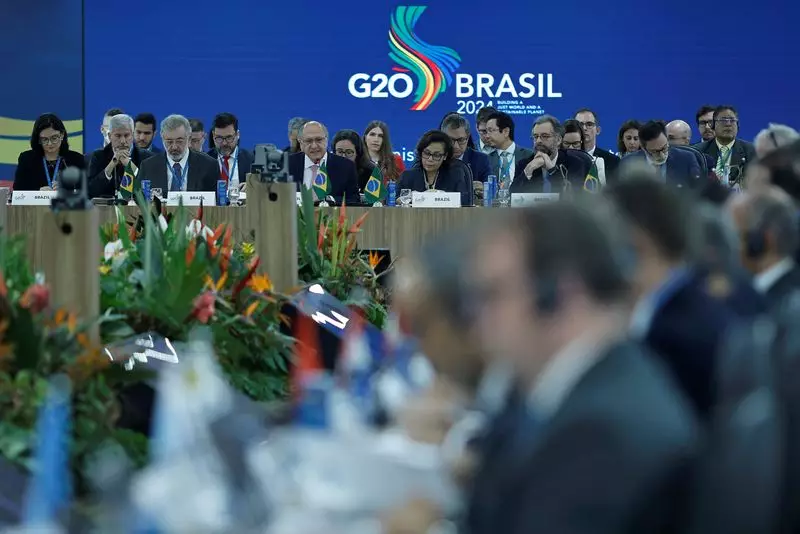In a recent gathering in Brasilia, trade ministers from the G20, a coalition made up of the world’s largest economies, engaged in meaningful discussions focused on sustainable development, women’s participation in trade, and essential reforms needed for the World Trade Organization (WTO). These discussions are particularly relevant as they set the stage for the upcoming G20 summit scheduled to take place in Rio de Janeiro this November.
For the first time in its history, the G20 has explicitly recognized the imperative of increasing women’s involvement in international trade. Brazilian Vice President and Trade Minister Geraldo Alckmin noted that this focus mirrors President Luiz Inacio Lula da Silva’s vision of inclusivity, positioning it as a foundational principle for G20 engagements. This move not only reflects a progressive commitment to gender equity but acknowledges the untapped potential women represent within the global economy.
Alongside gender inclusivity, the G20 ministers underscored the urgency of addressing climate change. Brazil’s pivotal role as the forthcoming host of the COP30 climate talks emphasizes the need for trade practices that prioritize environmental sustainability. Minister Alckmin called for international investments and trade policies to be aligned with sustainable economic development, demonstrating a clear intention to catalyze global efforts in combating climate issues through trade.
A broader consensus emerged among the members regarding the necessity of reforming the WTO, with the goal of establishing a more effective conflict resolution system. This initiative is particularly timely given the complexities of current global trade dynamics and the increasing number of disputes arising among member countries. A stronger, streamlined WTO is essential for fostering a reliable and transparent trading environment, ensuring fair competition, and leveling the playing field for all participants.
While the meeting managed to steer clear of contentious debates, there was an evident undercurrent of differing opinions regarding geopolitical issues like the ongoing tensions between Russia and Ukraine, as well as the crisis in Gaza. Some ministers advocated for these issues to be incorporated into G20 dialogues, while others contended that such discussions might detract from more pressing economic priorities. Ultimately, a unified consensus was reached regarding the core proposals, including those on women’s trade inclusion.
The discussions in Brasilia represent a crucial step forward for the G20, particularly in shaping policies that are equitable and aligned with contemporary global challenges. By placing emphasis on women’s participation, sustainability, and effective governance in trade, the G20 is not only acting responsively but also proactively in addressing issues that resonate throughout the international community. As the leaders prepare for their annual summit, the proposals emerging from this meeting are poised to create a significant impact on global trade dynamics and on efforts to foster a more inclusive and sustainable world.

